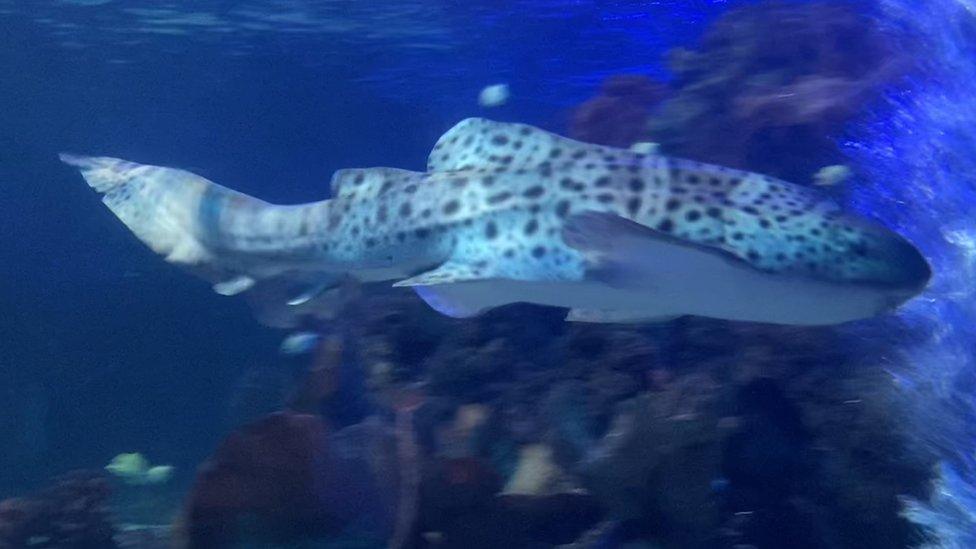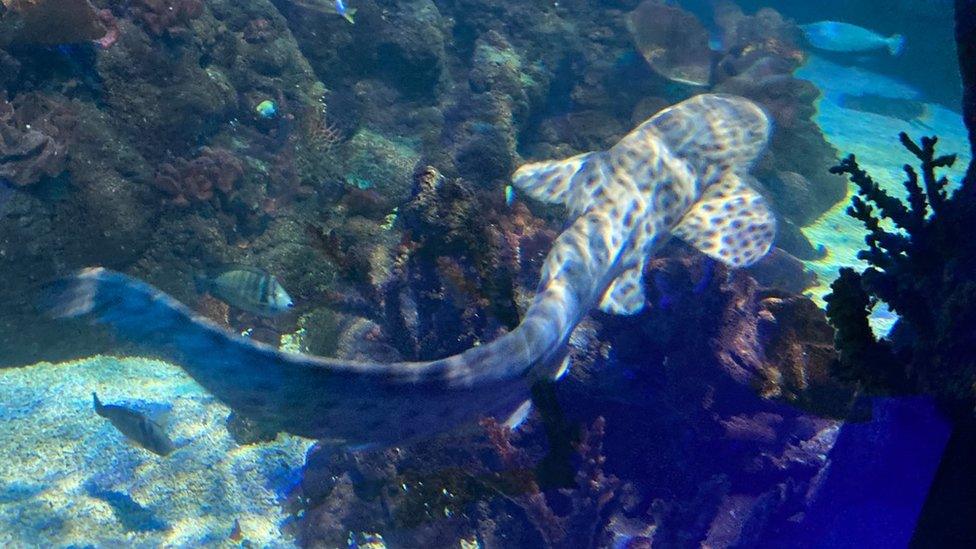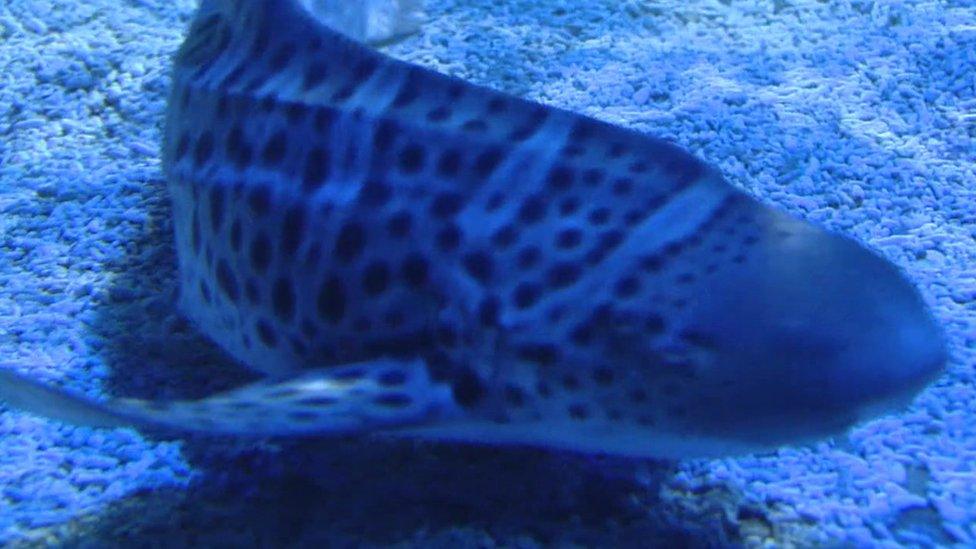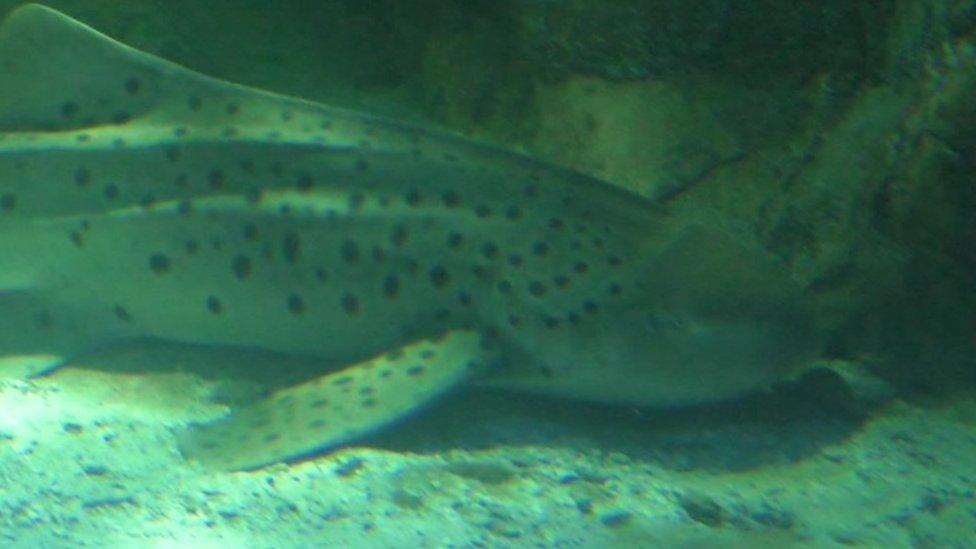Zebra shark breeding hope at Weymouth Sealife Centre
- Published

Zebra sharks are slow moving species that feed on the sandy bottom of the sea, primarily on molluscs and gastropod
The arrival of two new zebra sharks at a Dorset aquarium could help in the conservation of the species, marine experts have said.
Two-year-old Zizzi and one-year-old Rihanna arrived at Weymouth Sealife Centre from aquariums in France.
They are developing and growing in the tropical lagoon before moving to the ocean display in the new year.
"Hopefully, they'll breed and we'll get our own little zebra shark juveniles," aquarist Georgina Wyeth said.

The zebra sharks' stripes are replaced by spots as they get older
She added: "It'll help increase the gene pool, help conservation and increase numbers as they are endangered in the wild."
Zebra sharks are native to the Western Pacific and Indian oceans.
Despite the title, zebra sharks only have stripes when they are young. The stripes turn in to leopard-like spots as they mature.
The zebra sharks are fed with portions of squid, stuffed with mussels, clams and prawns. A vitamin tablet is added to the food as when the fish is defrosted it loses some of its nutrients and "the sharks need to grow", Ms Wyeth said.
The species is on the International Union for the Conservation of Nature (IUCN) red list as endangered as it has faced pressures from over-fishing and is hunted to supply "the trade in shark fin and their eggs are a delicacy", she added.

The species grows to around 2.4m but has been recorded to reach around 3.5m long
Ms Wyeth said: "They are very friendly, charismatic sharks - they're really nice to be around, especially when we go in snorkelling and clean the tank.
"They are very friendly and like to bump in to us for a little stroke now and again."

Follow BBC South on Facebook, external, X, external, or Instagram, external. Send your story ideas to south.newsonline@bbc.co.uk, external.
Related topics
- Published5 January 2012
- Published9 February 2017
